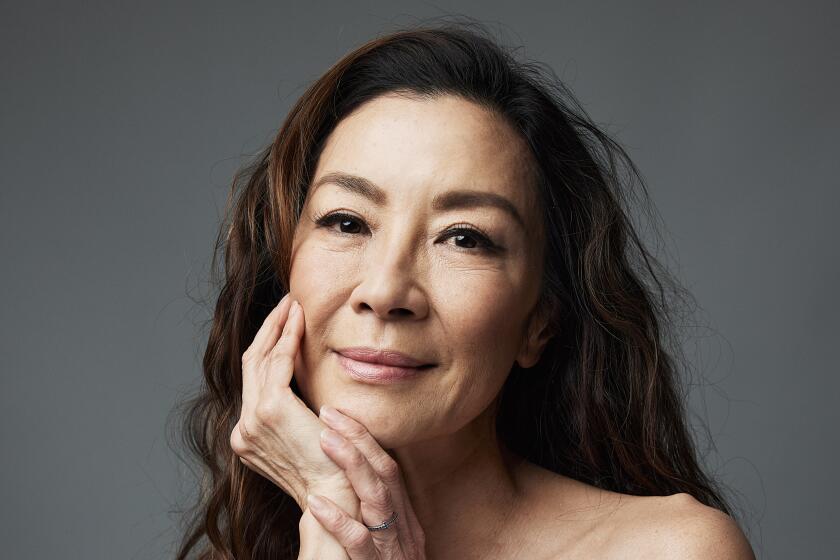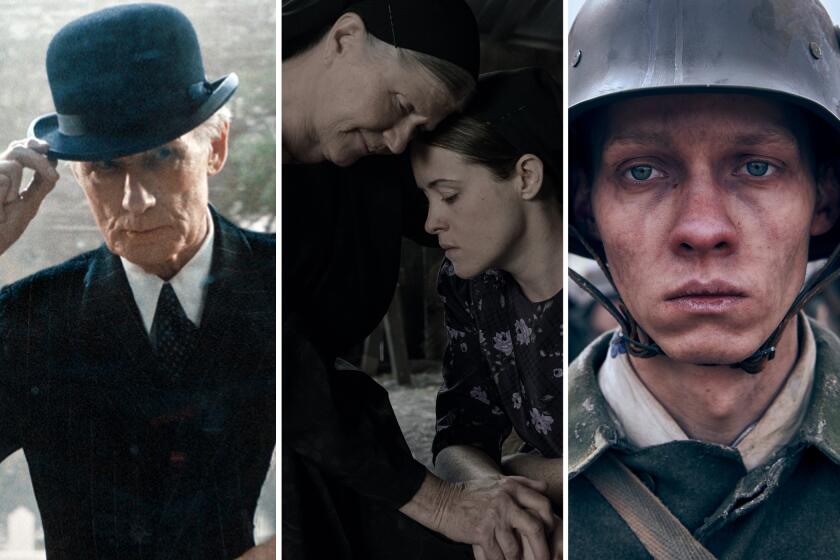- Share via
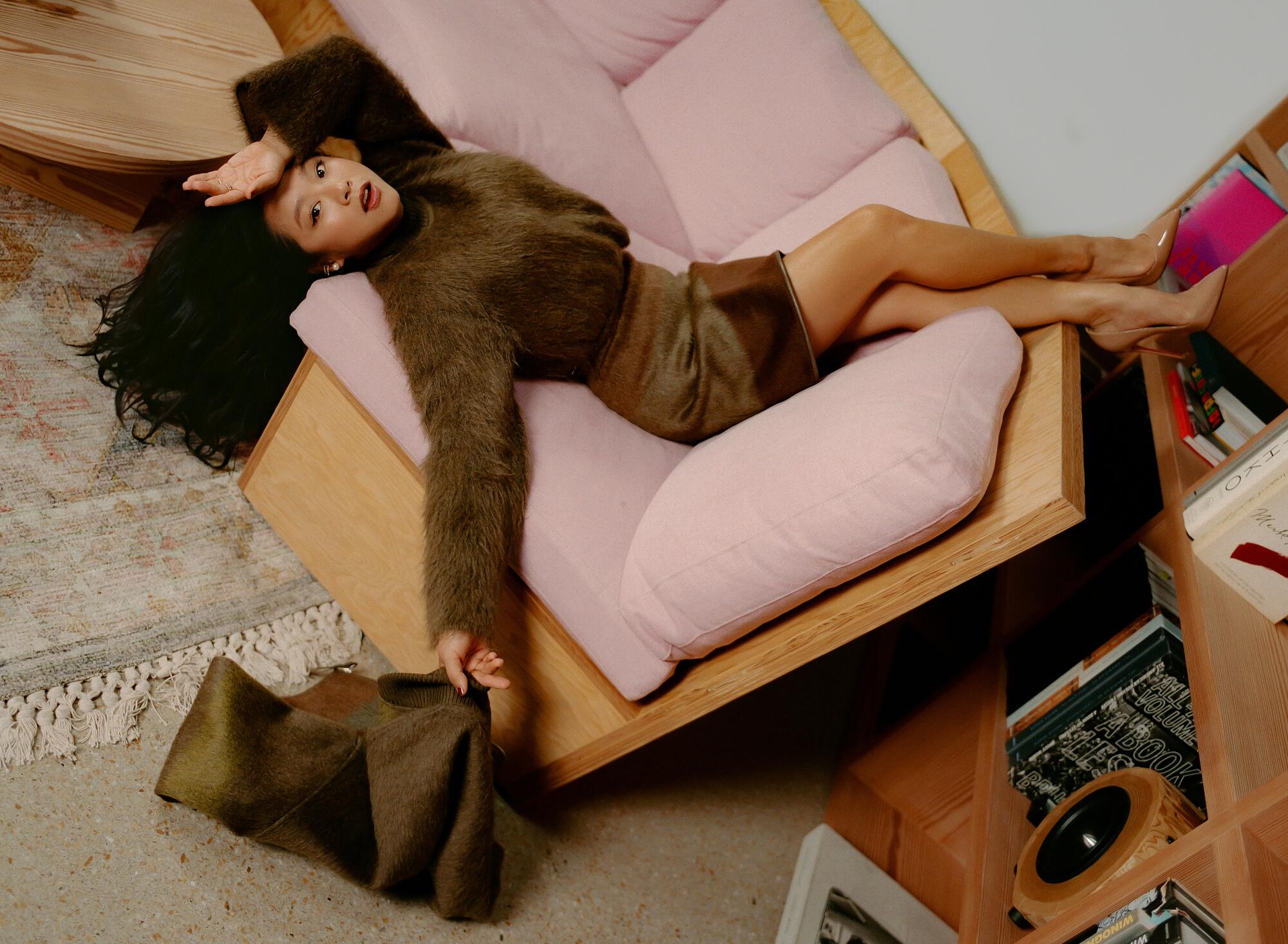
When Stephanie Hsu was growing up in the South Bay, the only child of a single Taiwanese American mother, she wanted to be an actress. Her sensible mom questioned that dream. “I remember being really young when I told my mom I wanted to be an actress,” Hsu recalls. “She pointed to the TV screen and said, ‘How can you be an actress? There’s no one that looks like you!’”
Undeterred, Hsu belted out Spice Girls tunes on the playground when she was 8, dazzled classmates with her singing and dancing in a high school production of “Thoroughly Modern Millie” and starred her senior year in “Noises Off,” hand-picked by her drama teacher for his prize student. “People kept opening doors for me that I didn’t know existed,” Hsu says. “One of my teachers said I should consider going to college for acting and I was like, I didn’t even know that was a thing.”
Hsu attended NYU Tisch School of the Arts and trained at the Atlantic Theater Company. By 2019, she was performing eight shows a week in the Broadway musical “Be More Chill” while squeezing in time to steal scenes in “The Marvelous Mrs. Maisel.” “The image I get is a horse kicking down a door,” says Hsu, alluding to her focus. “My mom’s not as much like that as I am, but she is very strong and persistent and smart. And when you bring in [the factor of] an immigrant family, it’s a lot about: ‘You have to be excellent in order to survive in this world that was not built for you.’ That was a huge narrative growing up for me.”
That intensity of spirit comes through in Hsu’s breakthrough movie role opposite Michelle Yeoh in “Everything Everywhere All at Once.” Written and directed by Daniel Kwan and Daniel Scheinert, the sci-fi action comedy has earned $102 million worldwide since its release last spring to rapturous reviews. Hsu initially plays Joy, the depressed, queer, tattooed daughter of the disapproving Evelyn (Yeoh). Hsu says, “I channeled into the idea of Joy being a ‘hyper empath.’ It’s a term used by Octavia Butler in one of her books that means someone who feels so much that they absorb every bit of news they read, every homeless person on the street — it completely swallows them. I wanted Joy to feel overwhelmed by the chaos of the world.”
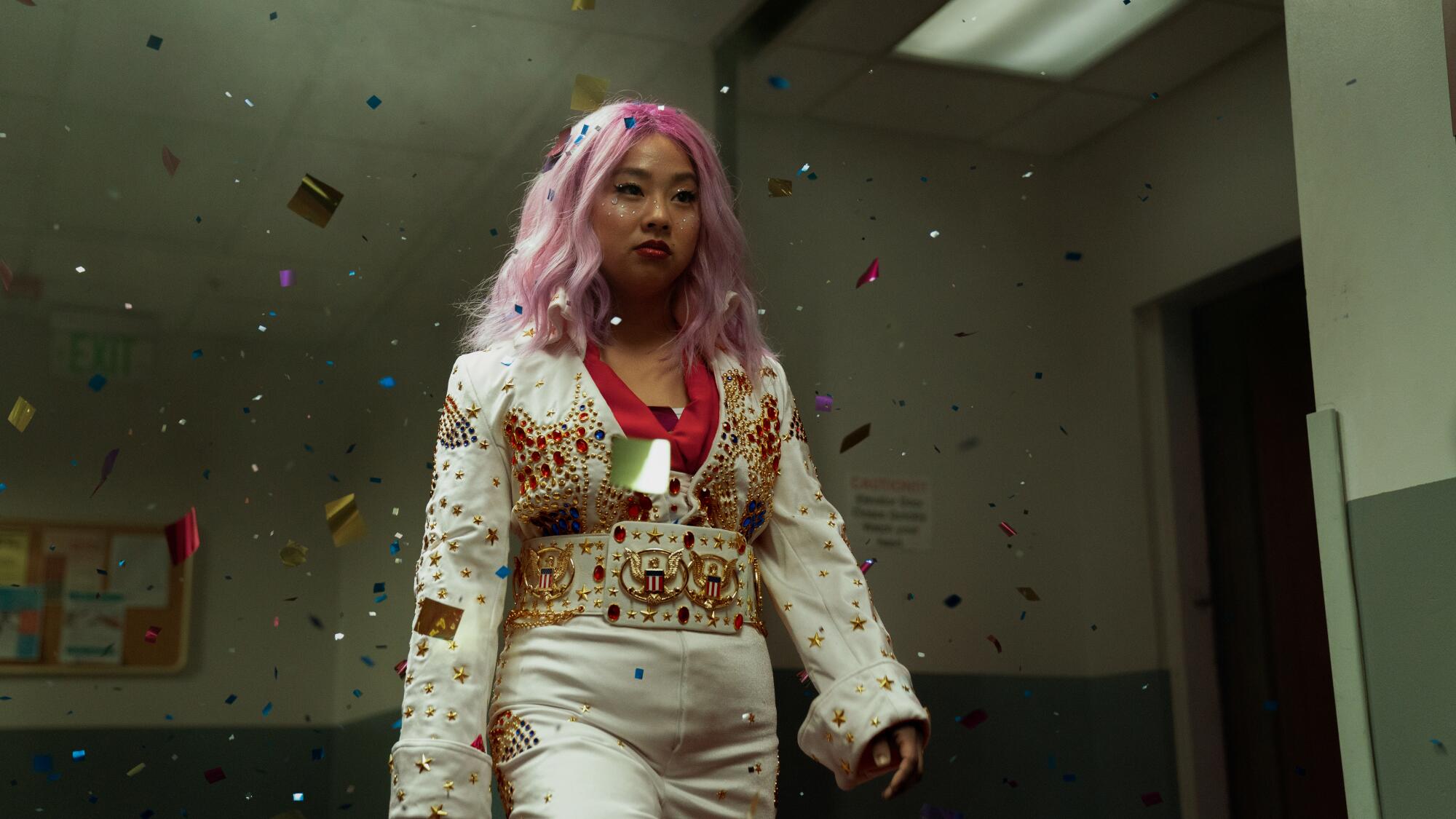
When Evelyn starts to whip-saw through the “multiverse” occupied by alternate versions of herself, Hsu materializes as havoc-wreaker Jobu Tupaki. She makes her parallel universe entrance walking a pet pig, cigarette dangling from her mouth, wearing a pink wig and bedazzled “Elvis suit.” Speaking from her publicist’s North Hollywood office, Hsu, who lives in a small town outside of Los Angeles, says, “When I came out in that costume, I wanted to make Jobu as stupid as possible, and I say ‘stupid’ as a loving term,” Hsu explains. “Like, how ridiculous can it be? This person is so powerful they don’t care what they look like.”
The actor is delighted she can finally be a little goofy on screen. She’s even happier that audiences accept her being funny.
For all their differences, Hsu invested Joy and Jobu with the same worldview. “Both characters share the same core spirit of nihilism. For Joy, if nothing matters, that sends her to a place of hopelessness. For Jobu, if nothing matters, then anything is possible. Therefore, here’s a pig; therefore, here’s a sex toy nunchuk. They’re two different expressions of that same thought.”
Hsu landed her dual roles after Kwan and Scheinert (who go by the Daniels), directed her in an episode of “Awkafina Is Nora From Queens.” Inspired by the filmmakers she describes as “soul mates,” Hsu decided to move back to Los Angeles after 11 years in New York. “I basically followed the Daniels to L.A.,” Hsu says. “Within a week of getting here, they sent me the script for ‘Everything Everywhere All at Once’ and said we think you’d be great for this.”
For all its wacky special effects, warped timelines, extreme personalities and hectic plot twists, the Daniels’ screenplay struck a chord with Hsu. “I’ve always had a predilection for the strange and the perverse,” she says. “In New York, I used to be part of the downtown experimental theater scene and I’m such a philosophy nerd — ‘Eternal Sunshine [of the Spotless Mind]’ was one of my favorite films growing up. The script actually made a lot of sense to me.”
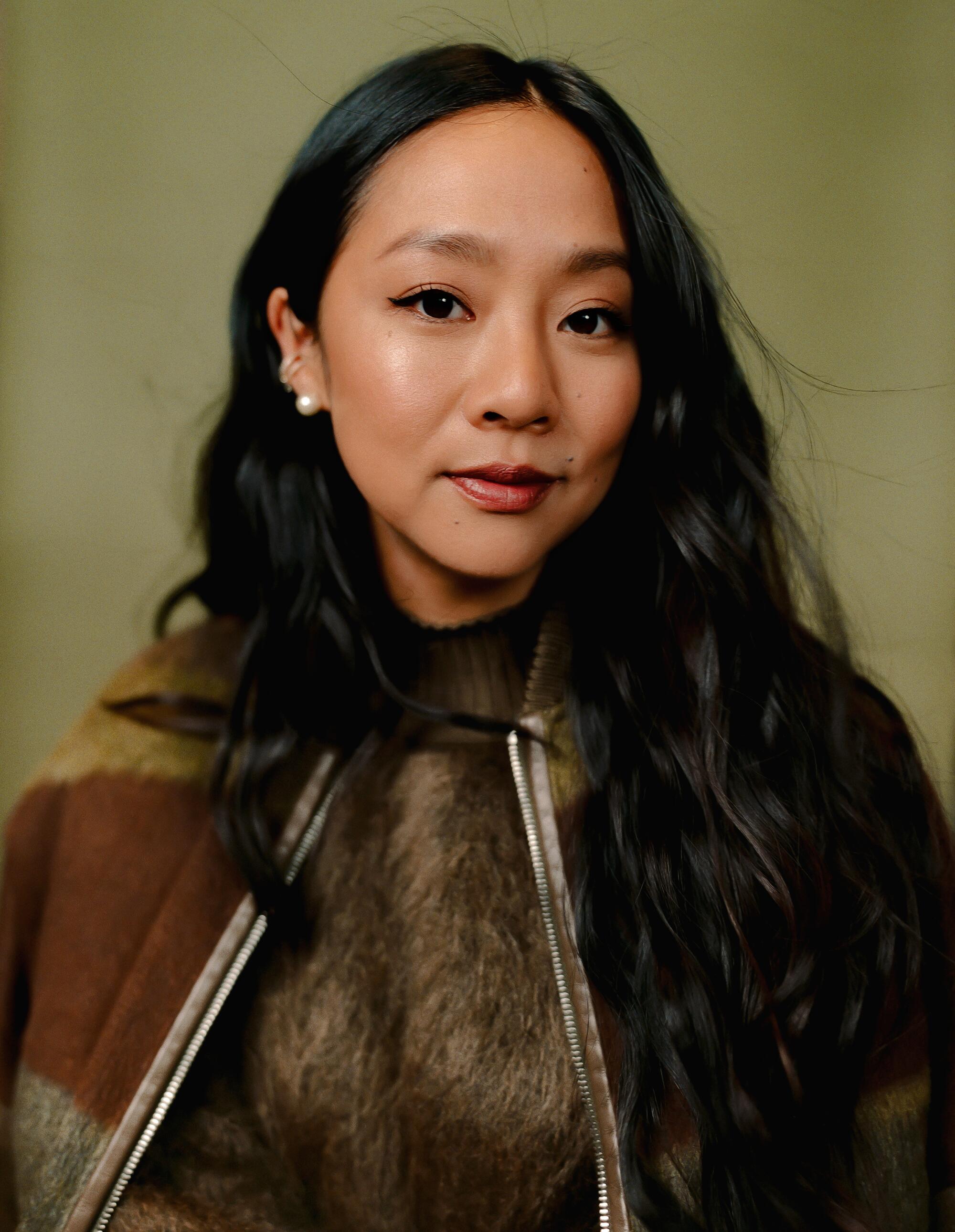
Shot mainly inside a Simi Valley warehouse-turned-soundstage, “Everything Everywhere All at Once” culminates in a tender parking lot reconciliation between mother and daughter. Hsu recalls, “When we shot that scene at the end of the production, it felt so cathartic because we’d all been waiting to articulate the heart of the movie: That despite all this heartbreak and love and pain, we just want to be right here, looking into each other’s hearts and finding the humanity for the cameras to capture.”
Moviegoers of all stripes have responded to the movie’s humor and humanity, Hsu notes. “Just seeing how this film has moved people, it’s like a touchstone of togetherness in the way it’s unified cinephiles and Asian folks and queer folks. People come up to us and say, ‘I used this movie to come out to my parents.’ Parents tell us how this movie has helped them re-engage with their children. Every artist’s wildest dream is to make that sort of impact.”
Our BuzzMeter film experts predict the Oscar winners in 10 categories. Check out the consensus picks, close races and interesting narratives - and vote in the polls for every category.
Closer to home, “Everything” even impressed Hsu’s skeptical mom. “For a long time,” Hsu says, “my mother was not supportive.” Then she overheard strangers on a bus talking excitedly about Hsu’s “firecracker” performance on “Mrs. Maisel” and started to come around. But the elder Hsu experienced full immersion in her daughter’s work for the first time when she saw an L.A. screening of “Everything Everywhere.”
“After the movie was over, my mom pointed at the movie screen. She wasn’t talking about my performance. She was talking about Michelle Yeoh, Evelyn. She pointed at the movie screen and said, ‘That’s me.’”
More to Read
From the Oscars to the Emmys.
Get the Envelope newsletter for exclusive awards season coverage, behind-the-scenes stories from the Envelope podcast and columnist Glenn Whipp’s must-read analysis.
You may occasionally receive promotional content from the Los Angeles Times.
